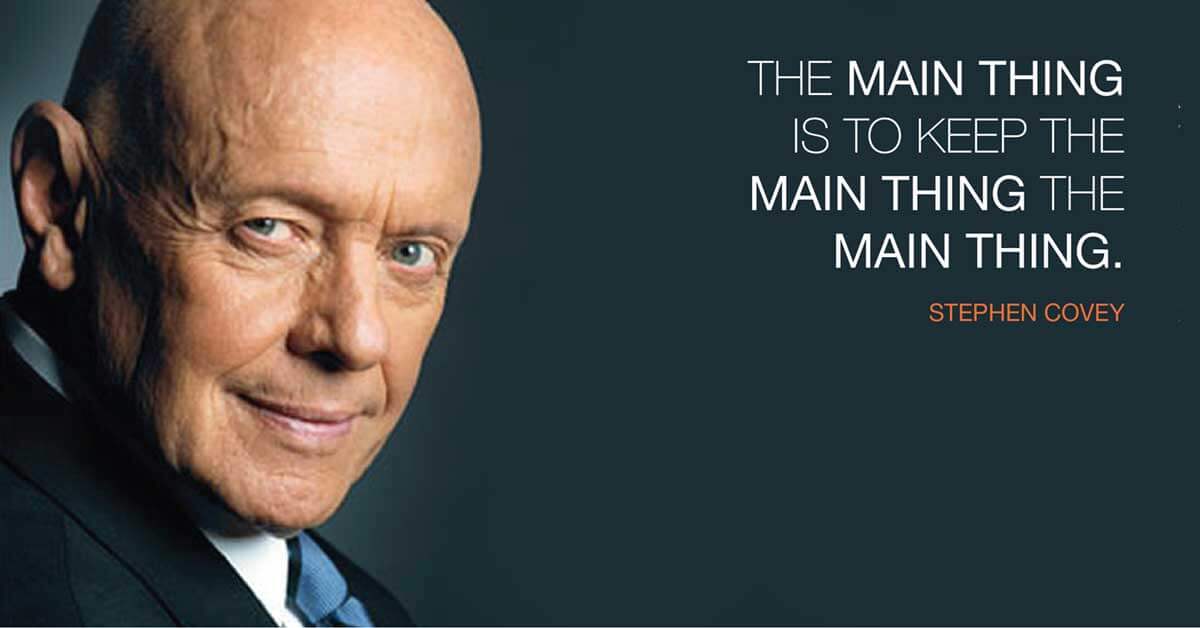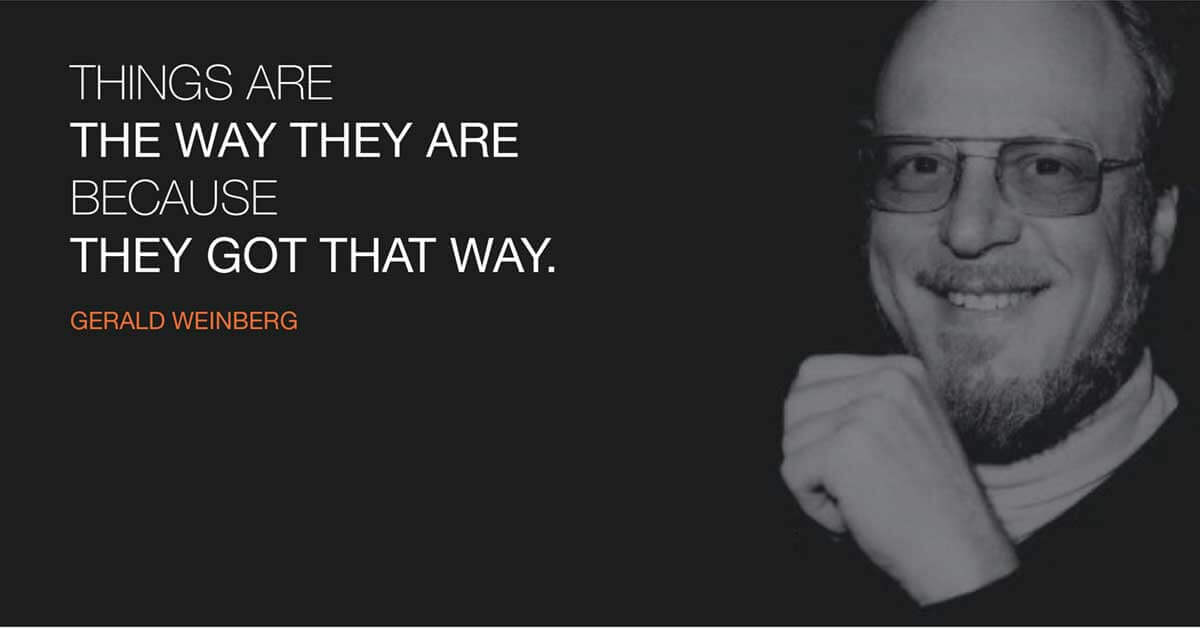-
-
-
-
URL copied!
Aphorism: [A] concise statement of a principle [Oxford English Dictionary]
Former American baseball player Yogi Berra was famous for aphorisms that at first glance seem reasonable, but on second thought make no sense at all. Some of my favorite sayings of his include one about a favorite restaurant, “No one goes there anymore—it’s too crowded,” and the philosophy, “When you see a fork in the road, take it.” The joke, of course, is that in order for the restaurant to be crowded, lots of people must be going there. Also, by definition, when a road forks, you have at least two options. So, the advice to “take it” doesn’t make any sense at all. They seem sensible—even wise—at first glance, but don’t stand up to scrutiny.
There is another set of aphorisms that are the opposite of Yogi Berra’s. At first glance these sayings seem nonsensical, but on reflection they point to a deeper truth.
Late management guru Stephen Covey liked to say, “The main thing is to keep the main thing the main thing.” At first glance, this makes no sense at all because whatever IS the main thing—to implement that business transformation, to take my startup public, to meet my personal financial or career goals—that objective is of course the main thing, isn’t it? Also, the statement itself is self-contradictory because if I keep the main thing the main thing, then I don’t really have a “main thing” at all, do I?

The wisdom of Covey’s statement becomes clear when you actually try to accomplish any large goal. The biggest challenge you will inevitably encounter is other demands that take you off course. The bigger and more important your overall goal is, the more opportunities there are to become distracted along the way by things that are not as important, but that are — or seem — more urgent and immediate.
The only way to accomplish your big-picture goal is to keep it as your main objective, in spite of all the distractions that come along. Unless you can stay on course, no matter what distractions come along, you will never accomplish your big picture goal. Staying undistracted is so essential to meeting your goal that unless you put that first, you will fail. In other words, “the main thing is to keep the main thing the main thing”.
Another saying I like comes from software management guru Gerald Weinberg: “Things are the way they are because they got that way.” At first glance this is so blindingly obvious as to seem nonsensical. However, when you are facing a complex situation, it is profound. No matter how chaotic or dysfunctional the situation may look at the moment, there was a cause behind it. When you can figure out why things got to be the way they are, you have already come a long way toward a solution.

In engineering, most people tend to be rational actors most of the time. Most people, even the ones we don’t like or agree with, also tend to be at least relatively smart. This means there was probably a reason why a decision that now seems horribly wrong appeared to be the right idea at the time. I myself have made a few such bone-headed decisions — fortunately not too many, but some. And I’m pretty sure you have, too.
The exact wrong thing to do in such cases is to double-down and dig the hole still deeper — or take a knee-jerk reaction and just do the opposite. The right thing, whether it was your own bad decision or someone else’s, is to take a deep breath, understand what drove the original decision, show some mercy to yourself or the past decision-maker — and then fix it. Until you understand the drivers behind the wrong decision, though, you will never know if your new decision is any better.
Realizing that there were causes behind a current dysfunctional situation is the first step toward looking at it dispassionately enough to make better choices this time. Simply disparaging the previous decision-maker or decision while moving in a new direction can sometimes lead to success. However, it is usually less productive than first figuring out what was behind the old direction in the first place. There may indeed have been a good reason behind what is now clearly a bad choice. You may find that those reasons no longer apply, or that choices were indeed made out of ignorance or other wrong motives. In this case, by all means shed the past and start fresh. However, if there are underlying reasons that still do apply, then you will do better by considering them first before you chose a new direction.
We can all profit from the wisdom of those who came before us; we should never give up on learning. Because, as Yogi Berra once said, “It ain’t over until it’s over.”
Trending Insights
If You Build Products, You Should Be Using...
Digital TransformationTesting and QAManufacturing and IndustrialEmpowering Teams with Agile Product-Oriented Delivery, Step By...
AgileProject ManagementAutomotiveCommunicationsConsumer and RetailMedia
Let’s Work Together
Related Content
GenAI in Action: Lessons from Industry Leaders on Driving Real ROI
Generative AI (GenAI) has the potential to transform industries, yet many companies are still struggling to move from experimentation to real business impact. The hype is everywhere, but the real challenge is figuring out where AI can drive measurable value—and how to overcome the barriers to adoption. In the latest episode of Hitachi ActionTalks: GenAI, … Continue reading Aphorisms for Software Management →
Learn More
Unlock the Power of the Intelligent Healthcare Ecosystem
Welcome to the future of healthcare The healthcare industry is on the cusp of a revolutionary transformation. As we move beyond digital connectivity and data integration, the next decade will be defined by the emergence of the Intelligent Healthcare Ecosystem. This is more than a technological shift—it's a fundamental change in how we deliver, experience, … Continue reading Aphorisms for Software Management →
Learn More
Share this page:
-
-
-
-
URL copied!